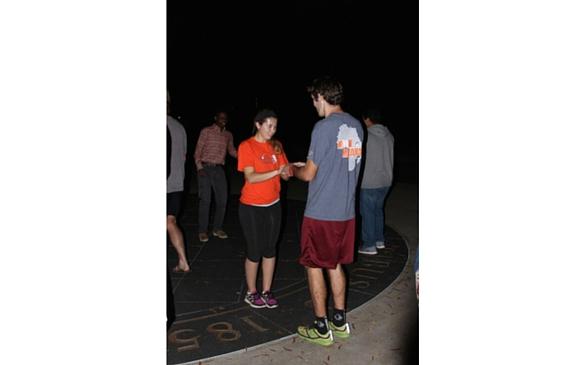By: Katie Sanders, Staff Writer
“I can define America in one word: possibilities. Given the chance, there is not a single person fighting to get here, specifically Latinos and Hispanics, who aren’t capable of taking advantage of the possibilities here.”
At an event kicking off Hispanic Heritage Month on Sep. 15, the anniversary of the liberation of Costa Rica, El Salvador, Guatemala, Honduras and Nicaragua, Joe Biden delivered a speech encouraging attendees to adopt the attitude of “you’re always welcome here” towards Latin-American immigrants.
In light of Hispanic Heritage Month, the Old Gold and Black sat down with Jennifer Gutierrez, director of diversity and inclusion, to talk about how Wofford is creating its own welcoming atmosphere.
“The goal of my department is to make the Wofford campus and community more diverse and inclusive. We want to help people be aware of differences and different cultures,” says Gutierrez, who is working with Wofford students to recognize and celebrate all awareness months, including, but not limited to, Hispanic Heritage, Black History, Sexual Assault Awareness and Women’s History.
To celebrate Hispanic Heritage Month, there have been movie and documentary screenings throughout October, and the Association of Multicultural Students hosted a Latin-American dance event, Salsa on the Seal. There, students learned and practiced merengue, cumbia, bachata and salsa, and they enjoyed a nacho bar.
“Intentional and direct conversations about race and culture are high-risk events,” says Gutierrez. “Students tend to shy away from those, which is why my office has a combination of both low and high-risk events. Things like salsa on the seal are more informational and fun, and overall nonthreatening.”
The movies shown were each about a different Latin-American country in order to show the diversity that exists even among the Spanish-speaking nations. The turn out, however, was not great, which, according to Gutierrez, is not atypical for a multicultural event. The Black Student Alliance does not receive a great turn out for their table talks either.
“Students hear diversity and automatically think about race or rights. They think, ‘oh that’s for people with race issues, not for me,’ or they think, ‘ugh, I don’t want to have these conversations anymore.’ Some people think not talking about these things make them go away. They don’t want to get caught saying something politically incorrect. But it’s not necessarily about being politically correct, it’s about learning how to navigate human differences,” says Gutierrez.
According to Gutierrez, tradition often poses a hindrance to developing a more diverse and inclusive college community.
“People are reluctant to change,” says Gutierrez. “I understand tradition, I really do, but it’s been change that has made Wofford what it is today. After all, we have to remember this college was built by slaves for white males. If it had not been for change, Wofford would still be an all upper class white male college.”
In the College’s one-year-old strategic vision, the College includes the need for expanding diversity and inclusion on campus. The College will be hosting an array of programs and training workshops on diversity for faculty, staff and students in the future. Recently the College was recognized by the New York Times for economic diversity, and the College just announced a new scholarship program for first-generation students from Spartanburg and the state.
“Wofford is working to become an affiliate of the National Coalition Building Institute. We have six members in our Wofford team,” says Gutierrez. “The NCBI workshops will discuss the ways we’ve been socialized to think a certain way. We’ve all been raised in different parts of the world or the country, and we are going to think differently. If we shift attitudes, we can start having real conversations about real issues. We have to make diversity the priority it is. That prioritization begins at the top, with administration, and will trickle down to the overall Wofford community… Change has elevated Wofford to where it is today and will only continue to propel it forward. We need to continue to adapt to our global society.”






























